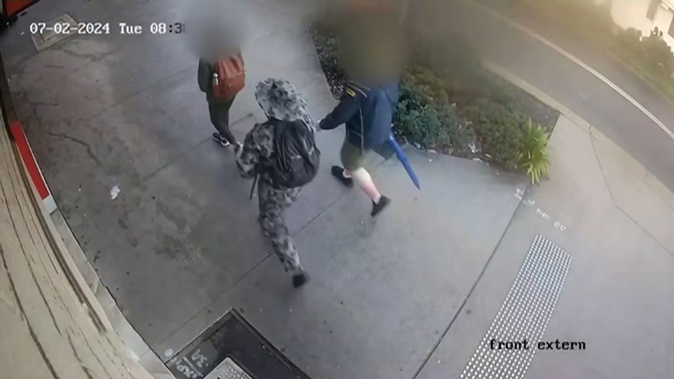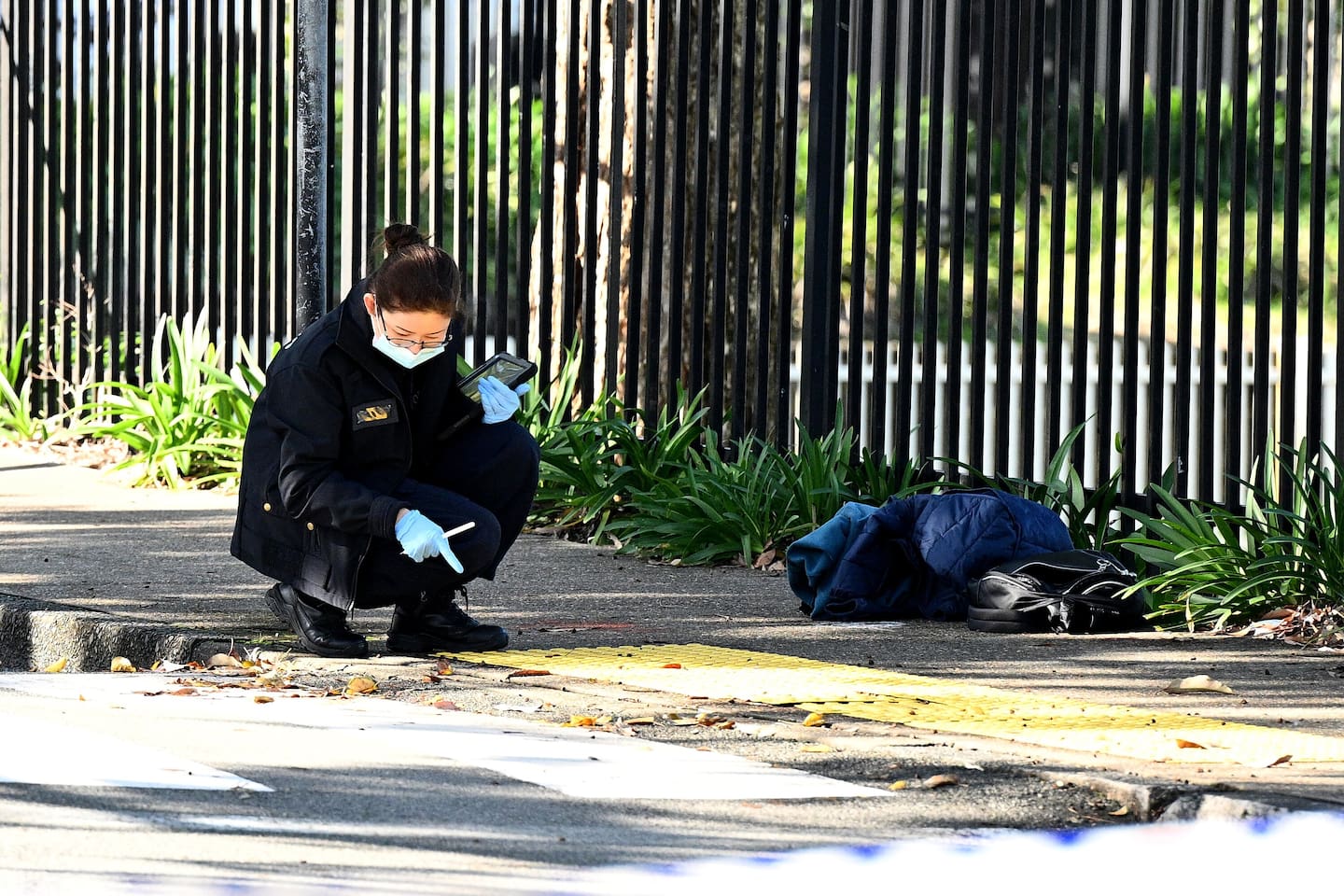
A 14-year-old boy accused of stabbing a Sydney University student is yet to be charged, as online radicalisation comes under scrutiny amid “concerning trends”.
Online radicalisation of young people is under scrutiny once more, as police weigh charges against a 14-year-old boy embroiled in a terrorism investigation after allegedly stabbing a university student with a kitchen knife.
9News reported that he had been accused of planning a “Christchurch’-style” attack in September last year.
The boy allegedly made threats to classmates, referencing terrorist Brenton Tarrant, who killed 51 people in the 2019 Christchurch mosque massacres.
Counter-terrorism police were called in after the incident at the University of Sydney on Tuesday, where the teen is accused of stabbing a 22-year-old man in the neck at the inner-city Camperdown campus about 8.30am.
CCTV footage released by authorities shows the teenager wearing camouflage gear as he enters the university campus.
The victim was rushed to nearby Royal Prince Alfred Hospital but has since been released.
The 14-year-old was arrested after he attended the same hospital, where he was treated for cuts and undertook a mental health assessment.
Home Affairs Minister Clare O’Neil told Seven’s Sunrise program the incident had not yet been declared a terrorist incident and she couldn’t comment.
“However, I can tell you that we are seeing some really concerning trends in the presentation of terrorism in our country, and in fact these are global trends,” she said on Wednesday.
Young people becoming radicalised was particularly disturbing, and social media and technology was partially to blame, she said.

A 14-year-old boy accused of stabbing a Sydney University student is yet to be charged. Photo / Facebook
“We’ve got some really concerning things going on here that we need to get a handle on,” she said.
Responding to reports the teen had been in a deradicalisation program, O’Neil said the commonwealth funds the programs, but states are responsible for running them, as different jurisdictions face different challenges.
“It’s really important that we do stay focused on how effective those programs are ... I’m confident these programs do have some effect, but we need to stay really focused on making sure that we’re attacking the problem with everything we’ve got,” O’Neil said.
Police ruled out religion as a motivating factor behind the attack, instead blaming access to extreme violent content online for allegedly radicalising the teen.
NSW Police Assistant Commissioner Mark Walton said the teen’s ideology would likely be classed as “mixed and unclear”, as he put it: “the salad bar of ideologies”.
“A lot of these vulnerable people, they’re not linked to one particular ideology, they will move as they’re exposed to different things,” he said on Tuesday.

NSW Police and Forensic investigators at the scene of an alleged stabbing at University of Sydney. Photo / AAP
“It might be of white supremacist neo-Nazi, it can easily flip into a religious ideation, it’s a very complex environment that some of these vulnerable people are engaged in, not a linear position.”
The teen was previously known to police and government agencies, Walton said.
A university spokeswoman said staff were working with authorities and there might be an increased security and police presence on campus while investigations continued.
Take your Radio, Podcasts and Music with you









